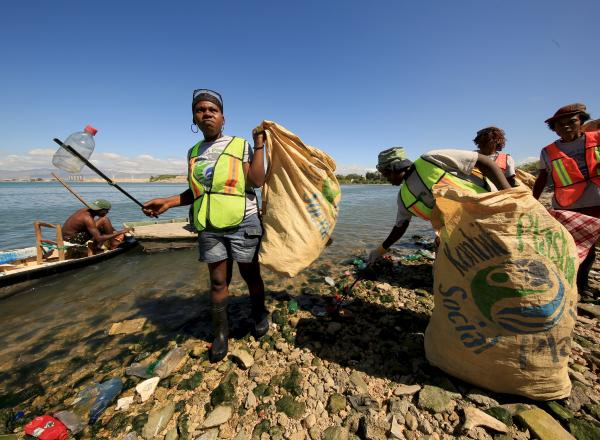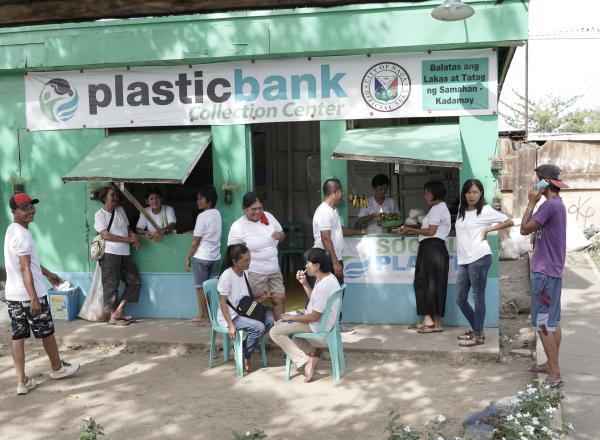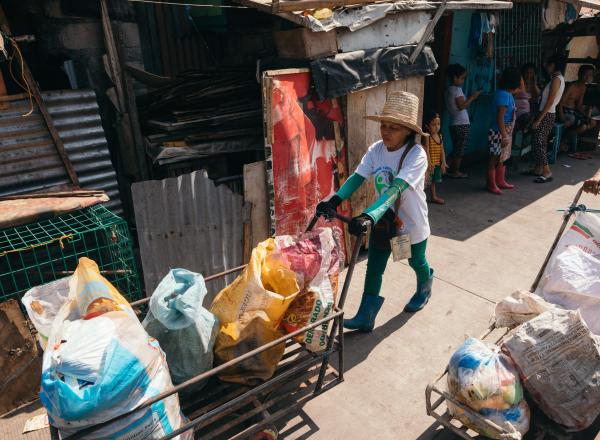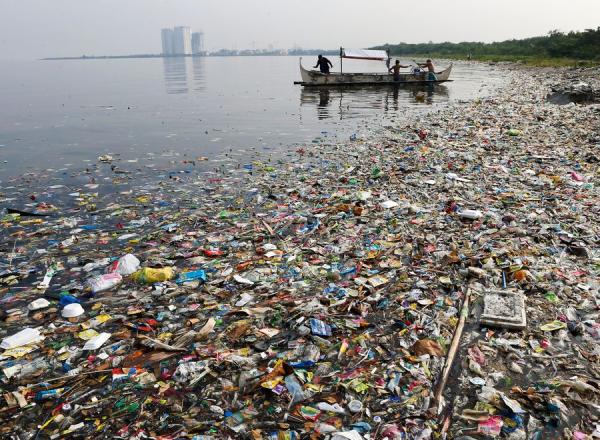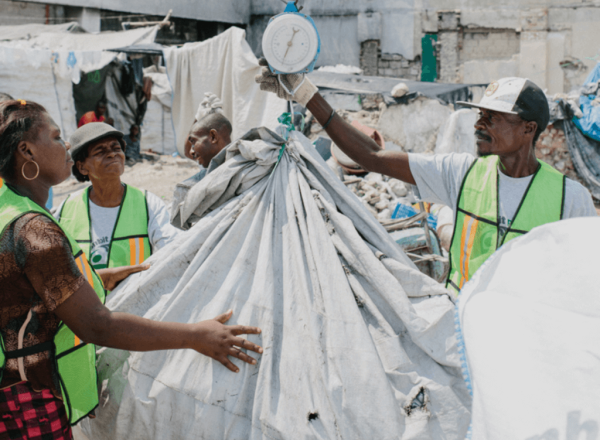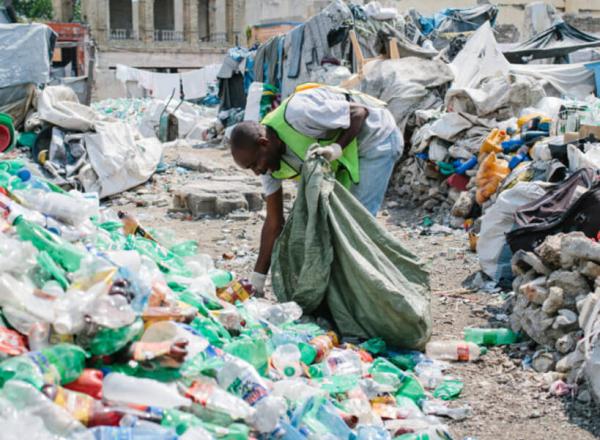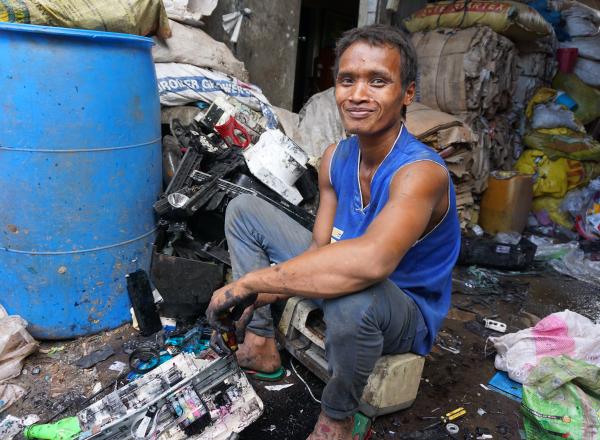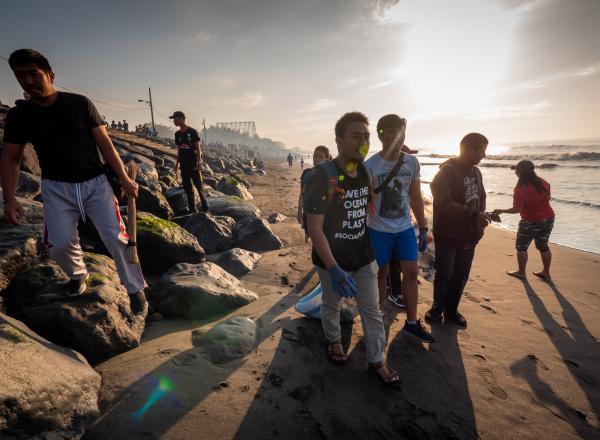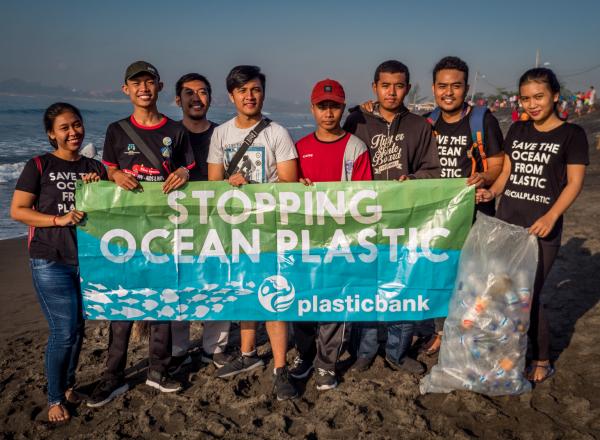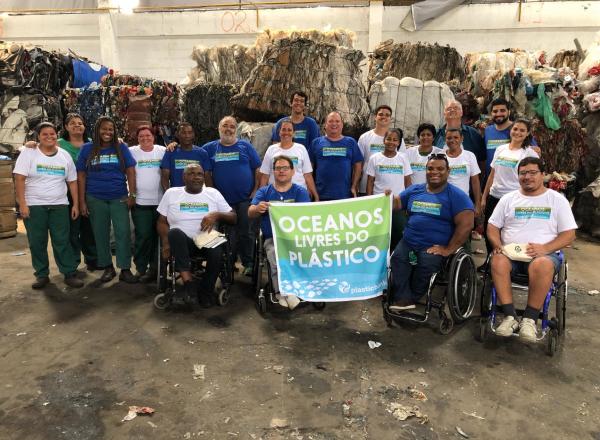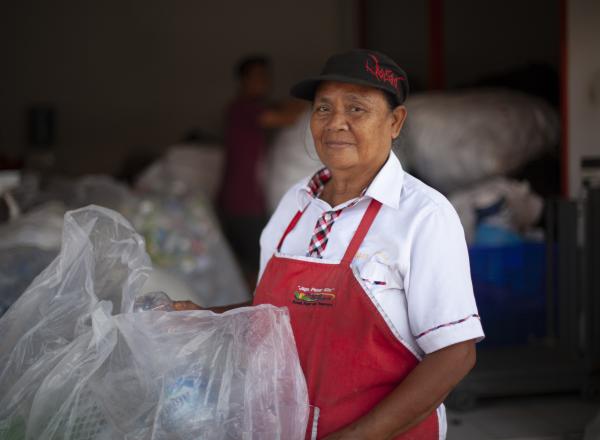Innovations
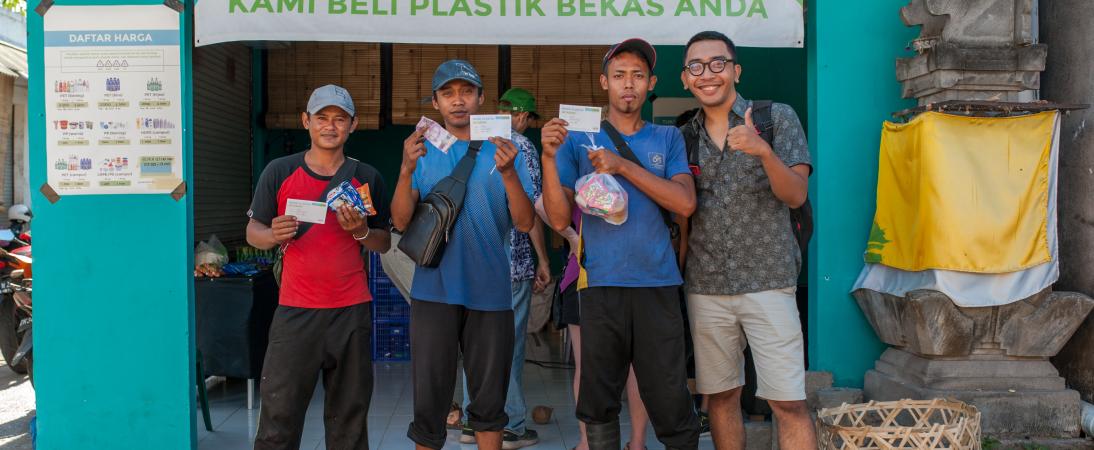
Plastic Bank
Empowering disenfranchised communities to exchange plastic for currency
Plastic can be an earned income for individuals around the world, particularly in developing nations with little opportunity for economic advancement. Through the creation of “Social Plastic Ecosystems”, ocean plastic can be prevented at the source by making plastic too valuable to just toss out. Plastic Bank is a social enterprise that empowers disenfranchised communities to exchange any type of plastic for currency. Collectors take plastic to a collection and sorting site-—a Plastic Bank Branch—and exchange it for money, cooking fuel or other valuable items specific to the area. This incentivization model makes recycling plastic not only environmentally friendly, but also provides a social benefit: impoverished communities gain access to stable income, local economies are boosted, and life necessities like food, water, and electricity become more accessible. The recycled plastic then becomes a “Social Plastic”. Plastic Bank offers services and support so that any member of society can be a plastic collector, even those without government identification and literacy skills. Plastic Bank provides support, education and a digital identity so they can receive a living wage through plastic collection.
The problem
Over 8 million tonnes of plastic waste surge into the ocean each year—the equivalent of a dump truck’s worth per minute. It’s estimated that plastic will outweigh fish in the ocean by 2050. Tackling plastic pollution at the source will be essential for solving this crisis. 80% of all ocean plastic originates from land and extremely poor regions are the most likely to suffer from extreme plastic pollution. In these regions, the lack of waste management infrastructure and greater dependency on single-use packaging results in a disproportionate amount of pollution. This represents an opportunity to transform plastic from a waste product to a source of currency and a resource for change.
The solution
Plastic Bank has created a new system for plastic exchange, similar to any other currency exchange, in which collected plastic is exchange for currency or other valuable goods. In addition, their IBM-powered mobile app platform uses world-class banking and transaction technology to empower collectors to open a functioning digital bank account—sometimes, the first they’ve ever had. For those reasons, they call themselves ‘Plastic Bank’.
How it Works
Collectors take plastic to a collection site (a Plastic Bank Branch) where the collectors are registered as members and the plastic is sorted, weighed and given value. Collected plastic is recycled and processed into new raw material feedstock, called Social Plastic, which can be purchased by manufacturers to produce more environmentally and socially ethical products. This completes the plastic loop, creating a sustainable, circular economy. The model is run as a coop, in which members are provided with a digital bank account and digital ID, as well as other workplace benefits such as health insurance. In this way, the impact goes beyond ocean health: new economic opportunities are created for the world’s most disadvantaged communities and recycling becomes dignified work. Collectors are not waste pickers or scavengers, rather they are recycling entrepreneurs. In order to amplify the scalability of Plastic Bank operations, Plastic Bank has developed a blockchain-based transaction platform, which is usable on any mobile device. The app uses cutting-edge technology, such as Smart Contracts, to ensure that all transactions are secure and transparent. This way, economic development created in vulnerable regions is not threatened by corruption or fraud. Developed with IBM, the app is built using the same infrastructure as the world’s biggest banks, allowing for infinite scalability.
Goals
To end plastic pollution by monetizing waste in such a way that every piece of material that any person encounters should be saved and never discarded
Challenges
- When they started 6.5 years ago, ocean plastic was not massively on the agenda and many companies were uninterested in buying social plastic, so it was challenging to shift the mindset that innovative solutions are needed.
- Continuously having to pioneer what has never been done before.
- Scaling up small village initiatives in poor, under-resourced areas with low literacy rates and little access to technology: Challenge in designing programs to help some of the least fortunate get a government ID, teach them to read, and acquire a digital identity in order for there to be in a career path beyond recycling, i.e. creating a starting point to a better life.
Impacts to Date
- Recycled over 11 million pounds of ocean bound plastic
- Over 10,000 members participate in their program
- More than 2,500 active collector members globally
- Currently operating in Haiti, the Philippines, Indonesia and Brazil with 25 plastic bank branches and hundreds of plastic collection sites
- Partnerships with large corporations such as Heinkel and SC Johnson who are buying and using social plastic in their products
What's Next
- Will be expanding aggressively in the next year, starting Plastic Bank Branches in Egypt and Vietnam
- Will be developing their programs so that they can be self taught and more easily adapted to a local context.
- Interested in developing an island-specific program: as long as there is a processing partner in any island and a shipping and logistics chain, the program can be easily replicated.
More information
Interview conducted with Shaun Frankson, co-founder of Plastic Bank.
For more information, please visit https://www.plasticbank.com/
